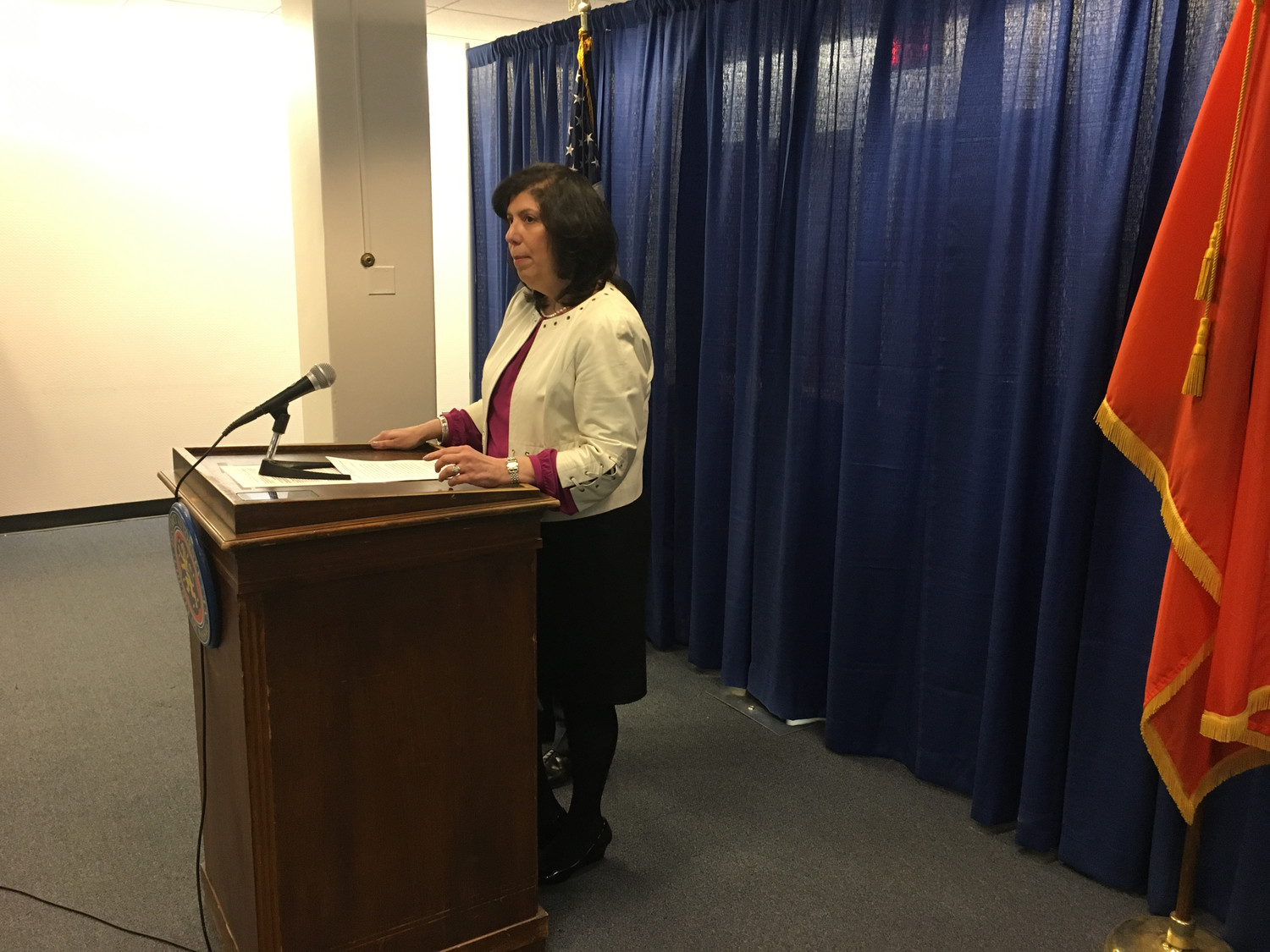Kaminsky bill cracks down on violent threats
State Sen. Todd Kaminsky announced on Monday that he would introduce a bill in the Senate that would criminalize threats of mass violence against schools, houses of worship and other public institutions.
Drafted by Nassau County District Attorney Madeline Singas’s office, the bill would create two new crimes: “making a threat of mass harm” and “aggravated threat of mass harm.”
Singas said that the proposed legislation would close a loophole in current state law and toughen penalties in order to “hold those who make threats accountable for their words.”
The proposed bill comes in the wake of some of the nation’s deadliest mass shootings, including one at Marjory Stoneman Douglas High School in Parkland, Fla., on Feb. 14, in which 17 students and teachers were killed.
In March, about 500 people gathered in Kennedy Plaza to protest gun violence in tandem with the March for Our Lives rally in Washington, D.C., and in solidarity with students around the country who pushed for stricter gun-control legislation.
“School threats have skyrocketed since the Parkland tragedy, causing lockdowns, panic, and have diverted law enforcement resources from their lifesaving work,” Singas said. “We need stronger laws that criminalize phony threats and protect our communities from the horrific violence that has stolen so many lives.”
The bill aims to be proactive in potential emergency situations that could occur in public places. “Any increase in the tools we can use to deter or prevent these types of threats against schools or houses of worship is a good thing for our society,” said Rabbi Jack Zanerhaft of Temple Emanu-El in Long Beach. “Even if it prevents one such threat, we would all benefit.”
The bill — which will also be introduced in the Assembly by Assemblywoman Christine Pellegrino — would remedy a deficiency Singas said was highlighted by a 2017 decision in the State Supreme Court Appellate Division’s Second Department, which found that a school employee’s alleged statement to a faculty member that she “better be absent the day they fire me, because I’m going to come in here and Columbine this [expletive],” was not enough to justify a charge of “making a terroristic threat.”
The charges in the case were dismissed, and the defendant later requested the return of his guns that had been seized by the police, including an AR-15-style semi-automatic rifle, an FN Herstal PS-90 semi-automatic rifle and a Mossberg 500A shotgun.
“The fact that someone in our state could say that he is going to ‘Columbine’ a school and yet police are nearly powerless to take action shows that our laws need strengthening,” Kaminsky said. “This bill will allow law enforcement to arrest those who make threats of mass harm, and, importantly, provides them a basis to seize weapons from perpetrators of these threats.”
Singas said that in the Second Department case, People v. Hulsen, the court noted that the crime of “making a terroristic threat” was enacted after the Sept. 11 attacks, and found that evidence was insufficient to show Brian Hulsen’s “intent to intimidate . . . a civilian population.”
“As a mother and a former teacher, a school shooting is my worst nightmare,” Pellegrino said. “The number of threats against our schools has dramatically increased, and we’re here to say enough is enough. Threats against the lives of students and faculty cause fear and panic throughout the community. They are not to be joked about or taken lightly. This bill will fix a glaring flaw in the current state law and ensure anyone who threatens our schools is held accountable for their actions.”
Under the legislation, anyone convicted of making a threat of mass harm would face up to a year in jail, according to the D.A.’s office. Defendants convicted of aggravated threat of mass harm — an elevated charge for those who prepare to follow through on their threats by making plans, compiling target lists or possessing weapons or devices — would face up to four years in prison.
If the bill is passed by both houses of the State Legislature and signed by Gov. Andrew Cuomo, it would take effect immediately.








